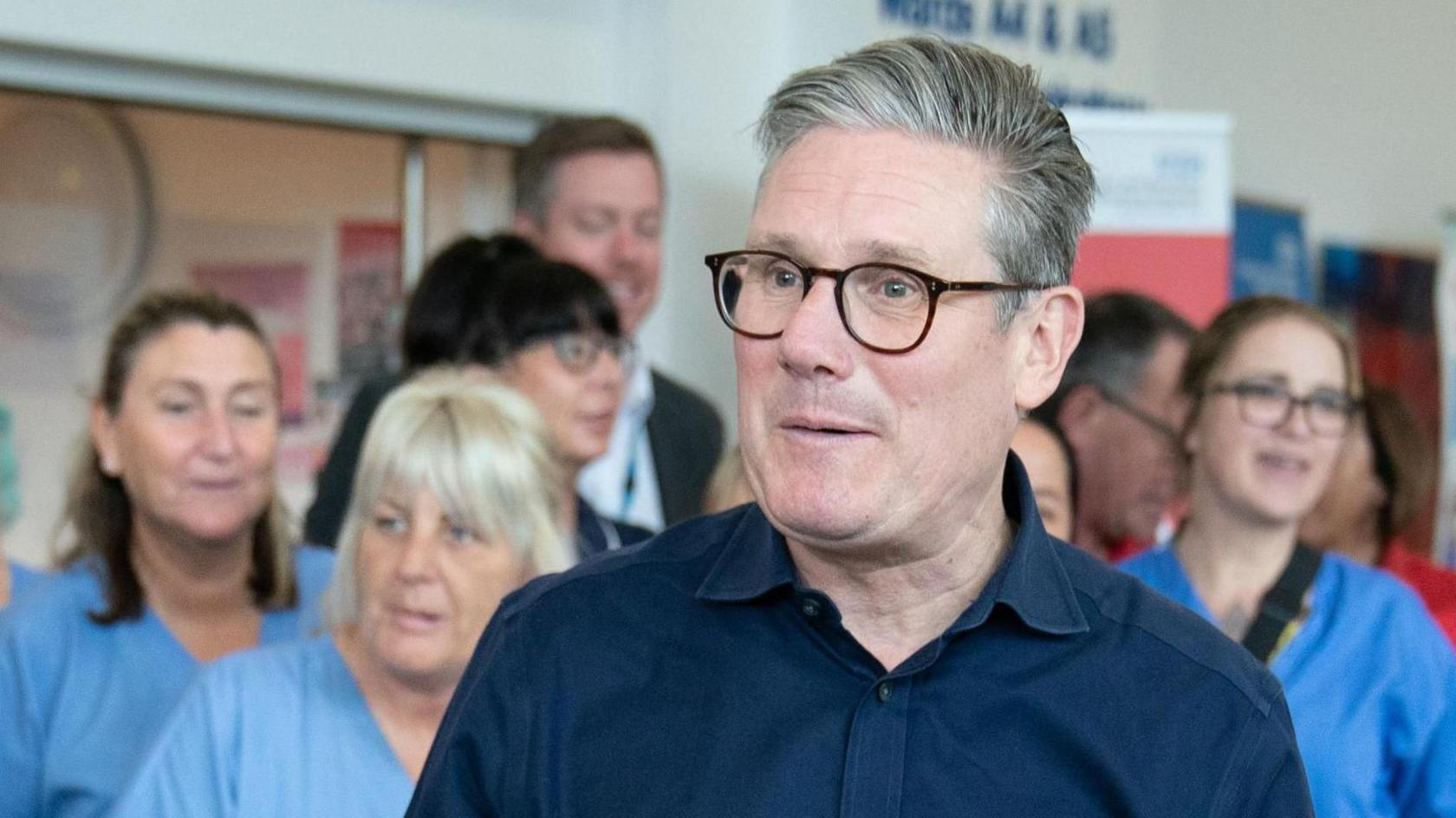Improve productivity for more pay, public sector told

- Published
Public sector workers will only get above inflation pay increases if they improve productivity, Downing Street has said.
Unions have reacted with anger to proposals for a 2.8% pay increase for teachers, NHS staff and senior civil servants next year.
The British Medical Association (BMA) said there was a "very real risk" of further industrial action if "pay erosion" was not addressed, while Unison's Helga Pile said the proposal was a "bitter pill".
But Downing Street said it was "vital that pay awards are fair for both taxpayers and workers".
The government said departments would have to fund 2025-26 and future pay increases from their own budgets.
Government recommends 2.8% pay rise for public sector
- Published11 December 2024
Reeves vows to cut 'waste' in spending review
- Published10 December 2024
Public sector pay deals help drive up UK borrowing
- Published21 November 2024
"For pay awards to go beyond inflation they will have to be met by productivity improvements," Sir Keir Starmer's spokesman told reporters.
Inflation - which measures price changes over time - is predicted to average 2.6% next year.
The pay recommendations will now be considered by public sector pay review bodies and a final decision made by the government next year.
Asked about strike threats, the PM's spokesman said the government "clearly values" public sector workers and had given them their "first meaningful pay increases for several years in July".
But, he added, the government had been "upfront" about the need to take "tough decisions" to after inheriting a £22bn "black hole" in the public finances from the previous government.
A spokeswoman for Sir Keir said the Conservatives' "scorched earth approach and failure of leadership" had led to strikes in the NHS.
But unions say pay is still failing to keep pace with the rising cost of living.
The BMA has said the recommended pay rise for 2025/26 "indicates a poor grasp of the unresolved issues from two years of industrial action".
Royal College of Nursing general secretary and chief executive Prof Nicola Ranger described the pay recommendation as "deeply offensive".
The National Education Union said it fell "well short of the urgent action needed".
TUC general secretary Paul Nowak said: "We all know the pressure on public finances from the mess the Tories left things in.
"But as the government's evidence acknowledges, the recruitment and retention crisis in our public sector has been driven in part by pay."
He said it was "hard to see how you address the crisis in our services without meaningful pay rises".
And he called on the government to hold a "serious conversation" with unions and workers about pay and public service reform.
Asked whether there are plans for ministers to meet union general secretaries to discuss pay, Sir Keir's spokesman said: "There will always be engagement throughout the pay review body process that is usual, and we'll obviously conduct the process in a collaborative way."